Your patient needs blood, but EVERYTHING is incompatible! Jill Storry says, “Take it easy. Here’s what to do next.”
NOTE: Continuing Education credit for this episode has expired. See below for details.

Dr. Jill Storry
What’s the Plan?
In this interview, Dr. Jill Storry, an internationally recognized expert in immunohematology, outlines her structure for evaluating panagglutinins. She describes how to use the pattern of reactivity, as well as the autocontrol and direct antiglobulin test (DAT) to make rapid evaluations. Her aim is for you to distinguish between the three main possibilities for panagglutinins (autoantibodies, antibodies against high-frequency antigens, and multiple alloantibodies) as quickly as possible.
You Want Practical? You’re in the Right Place!
This interview is full of practical tips and advice. We want to help you avoid panic and have a good idea of what to do when everything is incompatible. That’s why it is one of my very favorite episodes of Blood Bank Guy Essentials!

Dr. Jill Storry
What’s the Plan?
In this interview, Dr. Jill Storry, an internationally recognized expert in immunohematology, outlines her structure for evaluating panagglutinins. She describes how to use the pattern of reactivity, as well as the autocontrol and direct antiglobulin test (DAT) to make rapid evaluations. Her aim is for you to distinguish between the three main possibilities for panagglutinins (autoantibodies, antibodies against high-frequency antigens, and multiple alloantibodies) as quickly as possible.
You Want Practical? You’re in the Right Place!
This interview is full of practical tips and advice. We want to help you avoid panic and have a good idea of what to do when everything is incompatible. That’s why it is one of my very favorite episodes of Blood Bank Guy Essentials!

About My Guest:
Jill Storry, PhD is an Associate Professor at the Division of Haematology & Transfusion Medicine, Lund University, Sweden, and responsible for the Immunohematology laboratories within the Department of Clinical Immunology and Transfusion Medicine, Laboratory Medicine, Lund.
Her primary areas of interest are the study of human blood group systems, both from a clinical perspective in the provision of providing blood to alloimmunized patients and from the perspective of human polymorphism. She has authored over 80 original papers, reviews and text books related to blood groups, and given over 100 talks at international and national conferences and courses.
Dr. Storry is a Section Editor for Vox Sanguinis and a member of the Editorial Boards of Transfusion Medicine Reviews, Transfusion, and Immunohematology. She is also a member of the ISBT Working Parties on Red Cell Immunogenetics and Red Cell Nomenclature, and Rare Donors.
Continuing Education Expired
This podcast episode offered continuing education credit for two years from its release date, but is no longer eligible for such credit.
To find Blood Bank Guy Essentials Podcast episodes with active continuing education opportunities, Click here or visit Transfusion News Continuing Education on Wiley Health Learning.
DISCLAIMER: The opinions expressed on this episode are those of my guest and I alone, and do not reflect those of the organizations with which either of us is affiliated. Neither Dr. Storry nor I have any relevant financial disclosures.
Further Reading:
- BEST Collaborative article mentioned describing best practices: Ziman A et al. Warm-reactive (Immunoglobulin G) autoantibodies and laboratory testing best practices: Review of the literature and survey of current practice. Transfusion 2017;57:463-477
- Landmark article on the usefulness of the monocyte monolayer assay (MMA): Arndt PA and Garratty G. A retrospective analysis of the value of monocyte monolayer assay results for predicting the clinical significance of blood group alloantibodies. Transfusion 2004;44:1273-1281
- Description of serologic evaluation of patients on anti-CD38 (daratumumab): Chapuy CI et al. Resolving the daratumumab interference with blood compatibility testing. Transfusion 2015;55;1545–1554
Thanks to:
- Dr. Daniela Hermelin, Assistant Editor; Follow Daniela on Twitter for fantastic #blooducation!
- Samantha Chaffin, Design and content consultant
Music Credit
Music for this episode includes “Cuando te invade el temor” and “Reflejo,” both by Mar Virtual via the Free Music Archive. Click the image below for permissions and license details.




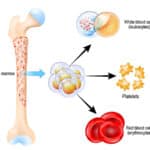

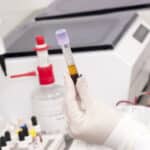



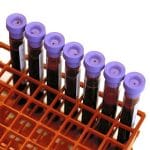

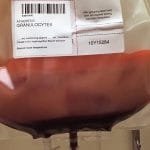
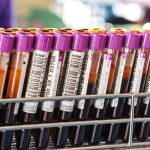
Excellent practical advice by Dr.Jill Story! Looking forward for more on panreactivity & their resolution !
Thanks for another great podcast. Dr. Storry mentioned in the work up of a suspected warm auto antibody, her Lab does not perform an eluate. Is there any additional information gained from performing an eluate in these work ups?
I don’t want to speak for Dr. Storry, but I think what she meant is that eluates in many WAA cases don’t make a lot of practical difference. Some labs choose to do them, of course, but in a case like the one that was described (very strong panagglutinin), an eluate would be very unlikely to add anything useful (it would likely just show…a very strong panagglutinin!). My personal perspective is that eluates are most helpful when the WAA is NOT as strong as in the case described here, or it has some variation in strength. The eluate showing panagglutination in that case (with the appropriate history, of course), would point you more strongly towards a WAA.
-Joe
Brilliant, as ever!
Just to say that, working in a London Reference Laboratory, as I did before I retired, one of the MOST important pieces of information we sought, after the urgency and underlying pathology, was the ethnicity, as London is a melting pot of different ethnicities (which, from my point of view, made it great, because we saw so many rare antigens and antibodies). Unfortunately, these days, because of increasing “Political Correctness” some places are becoming more and more reluctant to answer the question (some won’t), which is just so unhelpful.
So you can direct people to, https://www.blood.co.uk/news-and-campaigns/campaigns/black-history-month/
and tell them to scroll to the bottom where they can see “Join our Instagram Live events” and
“26th October
Why ethnicity matters
We’ll be looking at how better matched blood and organ donations provide better outcomes for Black patients.”